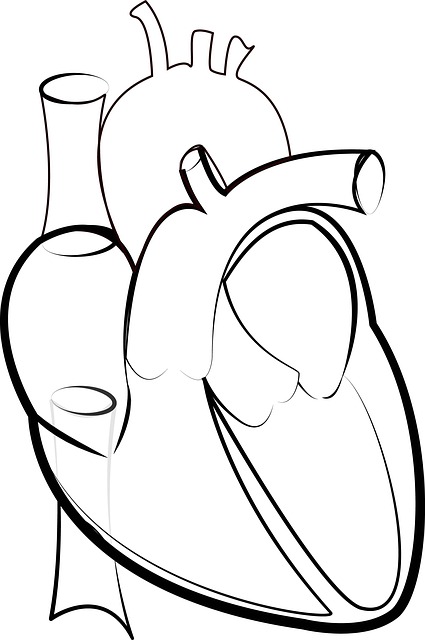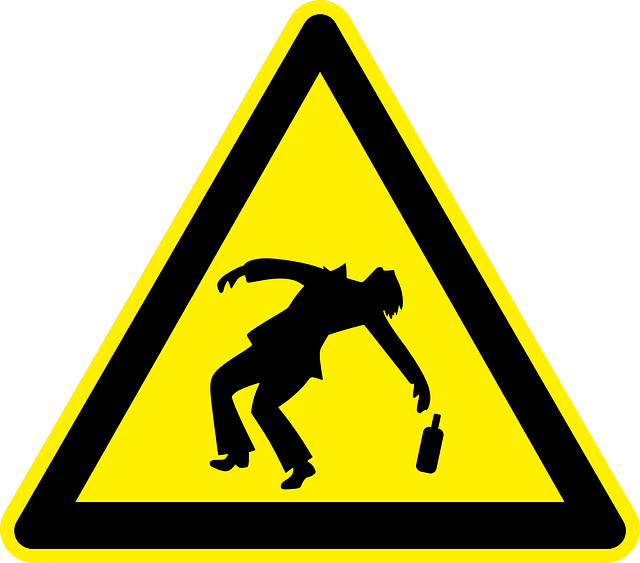How does alcoholism affect health, psyche? Cut it out, treat yourself

Have you had a hard day at work and there's a bottle of good wine waiting for you at home? Does the craving for a drink or two follow you all the way home? Or do you lose yourself in the thought of alcohol more often? Alcoholism is an addiction to alcohol.
Article content
Why quit alcohol and why get treatment, you ask? Best to avoid it altogether.
Alcohol addiction is a societal problem. It puts a strain on an individual's mental and physical health. But it doesn't stop there.
The negative impact on the family is considerable. The partner, the children, often the immediate family and neighbours suffer. Alcoholism is also a problem for society.
A person addicted to alcohol subordinates his or her life to it. Alcohol becomes the best companion for him or her, and family and close friends fall by the wayside.
The impact of alcoholism doesn't just stay within the family circle. Its impact extends to work as well. Inattention, unreliability and mistakes at work result in being fired.
The addict loses his job, his money, his possessions. He loses everything. But even here the negative impact doesn't end. The economic burden on the state follows.
In a state of drunkenness, there are frequent falls. Treatments, examinations, hospitalizations. If the alcoholic is committed to treatment, often his treatment is repeated. Sometimes unsuccessful despite several attempts. These socio-economic problems are one side of the coin. The other involves its effect on the body and health.
It is not for nothing that alcohol is said to be the scourge of mankind.
Do you know what effect alcohol has on health?
First and foremost, it's the psyche. This is where the initial addiction begins. It's psychological at first, and physical in later stages. If you're interested in the subject, you should stick with reading for a while.
Psychological problems associated with alcoholism
Alcohol can help a person to relax, to forget, but only up to a certain point. If it's too much, the next day the psyche is worse.

Alcohol deepens depression, induces states of anxiety. Behavioural disorders, aggression, aggression from alcohol are the cause of assault, rape.
The alcoholic is unable to control the amount of alcohol he drinks. He drinks as long as he is able. He has frequent blackouts, and when he wakes up, he continues.
Deep depression from alcohol is no exception. It causes suicidal thoughts and a number of attempted or completed acts.
Psychosis, hallucinations, delusions are all present in severe alcoholics. Delirium tremens is a term everyone is familiar with.
Read also: article about delirium
Delirium tremens is translated from the Latin as madness with tremors. It occurs when drinking alcohol is interrupted and is the most severe stage of the withdrawal syndrome. For the alcoholic, it represents a significant threat to health and life. It is reported that 5 to 15% of cases end in death.
Its symptoms first appear in the pre-delirium stage and then progress to delirium. And the main symptoms are:
- sweating
- trembling of the limbs
- nausea
- rapid heartbeat
- disorientation
- hallucinations
- delusions
- memory impairment
- psychomotor restlessness (active, restless)
- Emotional disturbance, alternating anxiety with a drop in mood, aggression
- convulsions of the body, such as an epileptic seizure
- heart rhythm disturbances
How it affects the body
It is said among people that in small amounts it is beneficial to the body and even a dose of one glass does no harm.
At first, the daily dose may not be noticeable on the body. But it has a negative impact on the body much before delirium and other visible symptoms set in. Apart from withdrawal and psychological symptoms, its long-term effect can also be found on the organs.
Calculating approximate blood alcohol (estimate).
Alcohol and the digestive system

Long-term drinking leaves a mark on the stomach. Inflammation of the stomach lining, i.e. gastritis, is common. Later, gastric ulcer disease and the resulting risk of bleeding from the ulcer.
Equally dangerous is damage to the oesophagus. Esophageal varices also result in bleeding.
Nausea, lack of appetite, vomiting, vomiting of blood, diarrhoea, blood in the stool, black stools. These are the most common symptoms of the above mentioned complaints.
A common disease is inflammation of the pancreas (pancreatitis). It can be in the form of acute or chronic. It interferes with the secretion of insulin, which is the basis of the development of diabetes.
In addition to diabetes, there are other diseases of the endocrine system. An example is a disorder of the pituitary gland, but also of the gonads.
Another serious disease as a consequence of alcoholism is liver damage. It is first manifested by fatty liver, technically steatosis.
Later, the damage is to such an extent that the liver cells die. After they heal, the functional tissue is replaced by scar tissue. Cirrhosis of the liver is a serious disease that results in impaired liver function.
Symptoms are usually present:
- swelling of the body, for example, ascites, which is swelling of the abdomen
- fatigue
- lack of appetite
- weight loss
- indigestion (flatulence, heaviness, vomiting)
- pain under the right rib arch
- yellow discolouration of the skin and whites of the eyes - icterus
After cirrhosis of the liver, the most serious disease as a consequence of alcoholism is liver cancer. But even with it, cancer does not stop there, and cancer can occur in numerous places.
Cancer as a consequence of alcoholism
As already written, liver cancer is not the only oncological disease that is on the alcohol list. Very often it is to blame in the case of cancer of the oral cavity, nasopharynx, throat, esophagus, stomach, pancreas. And this is because of its long-term negative effects.
Neurological diseases
Alcohol results in damage to the central nervous system. The nerve cells are sensitive to the level of alcohol and this damages them. This is compounded by reduced liver and kidney function. Neurological problems also occur.
Organic brain damage manifests itself in psychological difficulties. Epilepsy is another example, when epileptic seizures are associated. Nerve inflammation is also common. Myopathy results in paralysis. Cerebellar atrophy and encephalopathy are other examples of diseases resulting from alcoholism.

Cardiovascular system
Yes, long term drinking leaves its mark here too. The consequences are high blood pressure, vascular disease, atherosclerosis, arrhythmias.
But the most serious is damage to the heart itself. Also as a result of atherosclerosis. There is also toxic cardiomyopathy, which is actually damage to the heart muscle.
But alcohol is also toxic to the blood. It damages red blood cells, white blood cells and platelets. It causes anaemia, impairs blood clotting.
Alcohol and the rest of the body
As the consumption of alcohol increases, immunity and its strength decreases. Its impairment affects the whole organism. Alcoholics suffer more often from bronchitis, pneumonia, tuberculosis of the lungs. Various infections and skin diseases, also as a result of neglect of hygiene.
It also causes kidney disease and impaired kidney function. It adversely affects potency and sexuality. It causes infertility. Weight loss is present as a consequence of whole-body damage. Weight loss is the price of replacing alcohol with diet. And it is also a manifestation of other diseases.
Drinking injuries
Probably everyone has had the chance to see a person injured on the street and obviously under the influence of alcohol. Injuries, the consequences of its consumption, could be the subject of a separate chapter.
Falls and head injuries are often less serious. But concussion or serious intracranial injuries with bleeding are life and limb threatening. This also applies to winter and the high risk of hypothermia and frostbite.
From the pub, it is better to ride next to a bicycle than on it. Driving under the influence of alcohol is prohibited but still present. Alcohol does not belong behind the wheel of a car either.
Traffic accidents are the result of irresponsible behaviour under the influence of alcohol. The lasting consequences can be varied. Property damage, ill health, serious injury and even death. Even an occasional drink is better with a good night's sleep. Alcohol sticks in the blood until the liver has completely removed it.
Alcohol test through breath alcohol is the best test. Different applications to calculate residual alcohol cannot be taken as responsible for an objective result.
Stop alcohol...

As many women as men fail alcohol tests. But the worst is the combination of drinking alcohol and pregnancy.
Alcohol harms the unborn child and also negatively affects its health. It can result in fetal damage, developmental defects, addiction and even miscarriage.
Alcohol should be avoided by women planning to become pregnant. Similarly, alcohol should also be avoided when breastfeeding. It compromises the development and growth of the child at an early age.
It does not belong in the hands of children, but neither does it belong in the hands of adolescents under the age of 18.
Combination with drugs is also prohibited. Antibiotics and alcohol do not combine. Antibiotic treatment should be consistent and adhered to in order to have an effect. In addition, the burden on the liver is doubled.
You have already read about the intention to drive. The correct time after alcohol consumption is difficult to estimate, the consequences and fines tend to be too high. Do not even offer it to someone who has already experienced alcoholism and is in treatment. Support him and do not drink with him.
Available treatment
Alcoholism treatment and its success depends on the person concerned. It can be outpatient, but also in psychiatric clinics and alcohol treatment centres. In the case of more severe forms of alcoholism, hospitalisation is better. This usually lasts for three months, followed by lifetime abstinence.
Treatment is on a voluntary basis. And treatment can only be ordered under certain conditions, especially if the alcoholic is a danger to himself and his surroundings. Pharmacotherapy, aversion therapy, psychotherapy, but also sociotherapy are used. Alcoholics' clubs, abstinence clubs, are an appropriate form.
Video on how alcohol affects health










